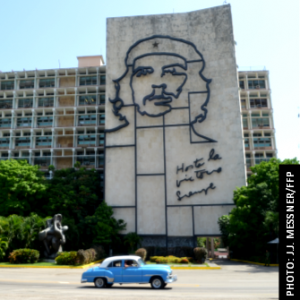BY DANIEL GANZ
The most fragile — and the most worsened — countries tend to attract the most attention in the Fragile States Index (FSI). However, the reality is that the majority of countries are improving based on the FSI’s trends, and a number of countries have made considerable progress in the past decade based on their FSI scores. These examples demonstrate that a long-term commitment to peace and reconciliation, poverty reduction, and economic growth collectively contributes to a government’s legitimization, and ultimately, the stability of its country.
Since his rise to power ten years ago, Cuba’s leader Raul Castro has accomplished more to improve Cuba-U.S. relations, usher in modern technologies, and stimulate its economy than his brother had done in the previous half a century. These incremental changes in Cuba’s political, economic, and social landscapes contributed to the historic events of 2016 that included the US easing trade restrictions to Cuba, diplomatic ties between the EU and Cuba were established, and President Obama became the first sitting U.S. president to visit the country in 88 years.
